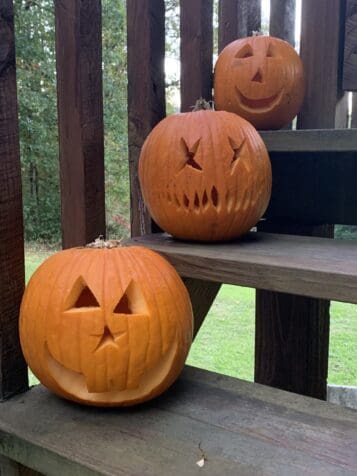Atlanta
The church and Halloween
By MICHAELA MULQUEEN, Special to the Bulletin | Published September 30, 2022
No holiday creates division among Catholics quite like Halloween. Every year as the temperature begins to drop and the leaves begin to fall, the age-old debate inevitably resurfaces—whether or not Catholics should celebrate Halloween. Some Catholics claim it’s pagan, while others say it is Catholic. One insists it encourages evil, while the other is adamant it celebrates the holy. And yet, some maintain it is only for fun. What is the truth?
In 609 A.D., Pope Boniface IV established May 13 as a day to celebrate the Christian martyrs. This is the basis for All Saints’ Day. During the reign of Pope Gregory III (731-741), the Feast of All Martyrs’ Day is first recorded as being celebrated on Nov. 1. It was during this time that the feast was expanded to honor all saints. Later, Pope Gregory IV (827-844) officially declared Nov. 1 as All Saints’ Day and designated it as a holy day of obligation.
There is some debate as to why the feast was moved, but many historians believe it was to coincide with popular pagan holidays. Establishing Christian holidays around pre-existing pagan ones was not uncommon in the early church—Christmas was set to coincide with the Winter Solstice; Easter was set to be the Sunday after the first full moon of the Spring Equinox (the Paschal Moon). Today, the understanding of most historians is that early Christians did this to encourage conversion of pagans.
As more and more pagans converted, many of their traditions were integrated into Christian holidays. All Saints’ Day was no exception. Samhain, celebrated by Celts on Oct. 31, is where many of Halloween’s traditions originated. Celts claimed Samhain was the one night of the year when otherworldly spirits could walk in this world.

The modern-day traditions of trick-or-treating, carving pumpkins and dressing up in costumes are all adapted from ancient Celtic customs.
The modern-day traditions of trick-or-treating, carving pumpkins and dressing up in costumes are all adapted from ancient Celtic customs. Some may use this to argue against Catholics celebrating Halloween, but having traditions that can be traced back to pagan origins is not inherently immoral. Evergreen trees, for example, held meaning to many cultures long before being adapted to Christianity and becoming the Christmas tree.
Halloween, like many other Christian holidays, has become secularized. Society brushes over the fact that it was once called “All Hallows Day Eve” and is still celebrated as the vigil for All Saints’ Day. Instead, most people view Halloween as a reason to go to a pumpkin patch, dress up, eat candy and watch scary movies. As Catholics, we must recall the significance Halloween holds in the church and the solemnity that follows it.
All Saints’ Day honors every saint in heaven, both the known and unknown. It is the hope of all Christians to be counted among their numbers one day. All Saints’ Day, and the subsequent All Souls’ Day, serve as a reminder that time on this earth is limited. “Memento mori” means remember your death. Many Halloween decorations and costumes call this to mind.
Halloween, as we know it today, exists because of All Saints’ Day. And, if you look, you can find many Catholic undertones throughout secular celebrations. However, you can also note pagan influences. Christianity drew converts from multitudes of cultures. As a result, it was inevitable that traditions to predate the church are now found in Christian celebrations. That does not mean these celebrations are inherently pagan or evil. If anything, they emphasize the universality of the church, and there is a unique beauty to be found in that.
It is important to note that the church stresses the dangers that may come when a person messes with the occult. In fact, the Vatican requires every diocese to have at least one priest trained as an exorcist. To that avail, while enjoying all the fun activities that Halloween has to offer, the church warns people to stay away from anything associated with the occult, such as ouija boards, seances and witchcraft.